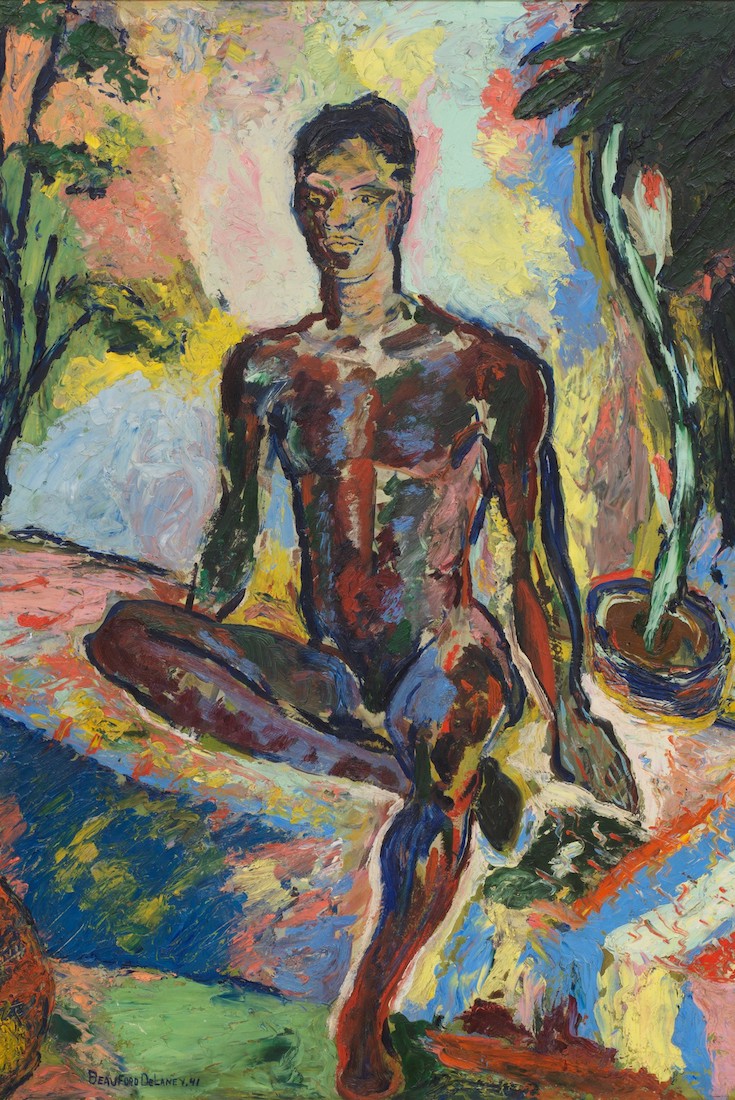Beauford Delaney’s “Dark Rapture (James Baldwin),” from 1941. The portrait of the young writer is a highlight of a group exhibition at David Zwirner Gallery. Credit via Michael Rosenfeld Gallery and David Zwirner. Featured Image
[dropcap]My[/dropcap] father said, during all the years I lived with him, that I was the ugliest boy he had ever seen, and I had absolutely no reason to doubt him.” So wrote James Baldwin in 1976, and he repeated his father’s words often. He did have reason to doubt them though. They didn’t jibe with my impression of the writer’s appearance as taken from a photograph on the cover of the 1955 paperback edition of “Notes of a Native Son,” which I owned and treasured when I was a teenager, and a copy of which you’ll find on display toward the start of the exhibition “God Made My Face: A Collective Portrait of James Baldwin” at David Zwirner. [mc4wp_form id=”6042″]
I would have first seen that photo at some point in the early 1960s. Baldwin was African-American; I was a white kid in the process of working my way through the sociopolitical dynamics of all that through reading him. What I mainly saw in the photo, though, was a young man, slope-shouldered in a floppy sweater, looking warily self-contained, and emphatically un-butch. I could relate.
As a young person, I was a constant, precocious reader, as he had been — binging on Dickens at 11, Shakespeare at 12; that kind of thing. My wonkishness led me to make older friends; as a high school freshman I hung out with juniors and seniors, who would pass on literary contraband. And in, I think, 1962, one good friend, Nina Angelo, gave me a copy of Baldwin’s novel “Giovanni’s Room,” which had openly homosexual characters.

